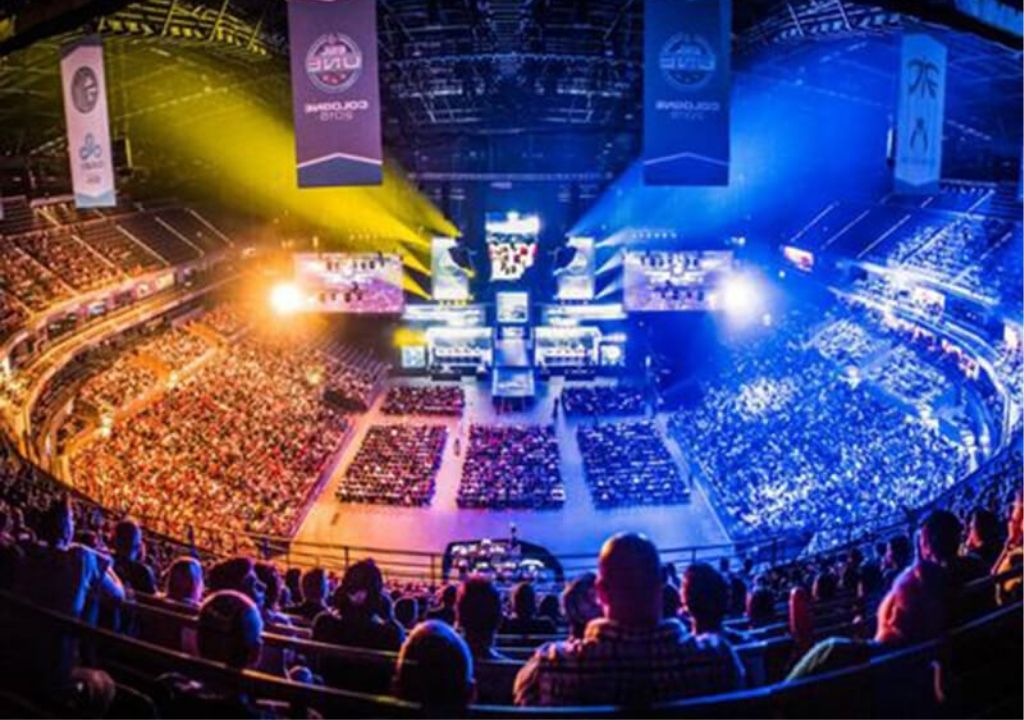
Meta Description: Explore the latest gaming trends and innovations of 2025, including advancements in AI, VR, cloud gaming, and more, transforming the gaming landscape.
Table of Contents
- Introduction
- Artificial Intelligence in Gaming
- 2.1 AI-Driven NPCs
- 2.2 Procedural Content Generation
- Virtual and Augmented Reality
- 3.1 Immersive VR Experiences
- 3.2 AR Integration in Mobile Games
- Cloud Gaming
- 4.1 Benefits and Accessibility
- 4.2 Major Players in Cloud Gaming
- Cross-Platform Play
- 5.1 Unified Gaming Communities
- 5.2 Technical Challenges
- Esports Evolution
- 6.1 Mainstream Recognition
- 6.2 Career Opportunities
- Mobile Gaming Advancements
- 7.1 5G and Mobile Gaming
- 7.2 Rise of Hyper-Casual Games
- Blockchain and NFTs in Gaming
- 8.1 Digital Ownership
- 8.2 Play-to-Earn Models
- Indie Game Development
- 9.1 Accessibility of Development Tools
- 9.2 Indie Games Impact
- Game Streaming and Content Creation
- 10.1 Popular Platforms
- 10.2 Monetization Strategies
- Diversity and Inclusion
- 11.1 Representation in Games
- 11.2 Inclusive Gaming Communities
- Sustainable Gaming Practices
- 12.1 Eco-Friendly Game Development
- 12.2 Energy-Efficient Hardware
- Advancements in Graphics and Hardware
- 13.1 Ray Tracing Technology
- 13.2 Next-Gen Consoles and GPUs
- Social Gaming Experiences
- 14.1 Multiplayer Innovations
- 14.2 Virtual Social Spaces
- Game Accessibility
- 15.1 Adaptive Controllers
- 15.2 In-Game Accessibility Features
- Regulatory Changes and Their Impact
- 16.1 Loot Box Regulations
- 16.2 Data Privacy Concerns
- Conclusion
- FAQs
1. Introduction
The gaming industry has experienced exponential growth over the past decade, evolving into a multifaceted ecosystem that caters to a diverse audience. As we step into 2025, several trends and innovations are poised to redefine the gaming landscape, offering immersive experiences and shaping the future of entertainment.
2. Artificial Intelligence in Gaming
2.1 AI-Driven NPCs
Artificial Intelligence (AI) has revolutionized the behavior of non-player characters (NPCs) in games. In 2025, NPCs exhibit more realistic and adaptive behaviors, learning from player actions to provide dynamic and challenging interactions. This advancement enhances immersion, making game worlds feel more alive and responsive.
2.2 Procedural Content Generation
AI-driven procedural content generation enables the creation of expansive game environments with minimal manual input. Developers utilize algorithms to generate terrains, levels, and quests, ensuring unique experiences for players and reducing development time.
3. Virtual and Augmented Reality
3.1 Immersive VR Experiences
Virtual Reality (VR) technology has matured, offering more immersive and accessible experiences. With advancements in hardware and software, VR games in 2025 provide high-fidelity graphics and intuitive controls, transporting players into captivating virtual worlds.
3.2 AR Integration in Mobile Games
Augmented Reality (AR) continues to blend digital elements with the real world, particularly in mobile gaming. Games leverage AR to create interactive experiences that overlay game mechanics onto everyday environments, enhancing engagement and creativity.
4. Cloud Gaming
4.1 Benefits and Accessibility
Cloud gaming has democratized access to high-quality games by allowing players to stream titles without the need for powerful hardware. This model reduces barriers to entry, enabling gamers to enjoy AAA titles on various devices with minimal latency.
4.2 Major Players in Cloud Gaming
Companies like Google, Microsoft, and NVIDIA have established robust cloud gaming platforms, offering extensive libraries and seamless integration with existing ecosystems. These services are continually expanding, providing gamers with more choices and flexibility.
5. Cross-Platform Play
5.1 Unified Gaming Communities
Cross-platform play has become a standard feature, allowing players on different devices to compete and collaborate. This unification fosters larger, more diverse gaming communities and extends the lifespan of multiplayer titles.
5.2 Technical Challenges
Despite its benefits, cross-platform play presents challenges, such as balancing gameplay across devices with varying capabilities and addressing platform-specific security concerns. Developers continue to innovate solutions to ensure fair and secure experiences for all players.
6. Esports Evolution
6.1 Mainstream Recognition
Esports has achieved mainstream recognition, with tournaments broadcasted on major networks and sponsorships from global brands. In 2025, esports is a billion-dollar industry, attracting audiences comparable to traditional sports.
6.2 Career Opportunities
The growth of esports has opened diverse career paths, including professional players, coaches, analysts, and event organizers. Educational institutions offer programs tailored to esports management and game design, reflecting the industry’s legitimacy.
7. Mobile Gaming Advancements
7.1 5G and Mobile Gaming
The rollout of 5G networks has significantly enhanced mobile gaming, providing faster download speeds and reduced latency. This advancement supports more complex and graphically intensive games on mobile devices, expanding the market further.
7.2 Rise of Hyper-Casual Games
Hyper-casual games, characterized by simple mechanics and short play sessions, have surged in popularity. Their accessibility appeals to a broad audience, making them a dominant genre in the mobile gaming market.
8. Blockchain and NFTs in Gaming
8.1 Digital Ownership
Blockchain technology has introduced the concept of true digital ownership in gaming. Non-Fungible Tokens (NFTs) allow players to own, trade, and sell in-game assets securely, creating new economic models within games.
8.2 Play-to-Earn Models
The play-to-earn model incentivizes gaming by rewarding players with cryptocurrency or digital assets that hold real-world value. This approach has gained traction, particularly in blockchain-based games.
9. Indie Game Development
9.1 Accessibility of Development Tools
Game development tools have become more accessible, enabling independent developers to create and distribute games without requiring significant financial backing.
9.2 Indie Games Impact
Indie games continue to push creative boundaries, often introducing innovative mechanics and storytelling techniques that influence mainstream gaming.
10. Game Streaming and Content Creation
10.1 Popular Platforms
Streaming platforms like Twitch and YouTube Gaming provide gamers with opportunities to broadcast gameplay, interact with audiences, and build communities.
10.2 Monetization Strategies
Content creators monetize their streams through advertisements, subscriptions, and sponsorships, making gaming a viable career for many individuals.
Conclusion
The gaming industry in 2025 is defined by groundbreaking innovations, from AI-driven gameplay to the rise of blockchain-based economies. With advancements in VR, mobile gaming, and esports, the future of gaming promises more immersive, inclusive, and accessible experiences.
FAQs
1. What is the biggest gaming trend in 2025?
The biggest trend is the integration of AI in gaming, enhancing NPC interactions, procedural content generation, and adaptive storytelling.
2. How will cloud gaming impact the future of gaming?
Cloud gaming will make high-quality gaming accessible to more players, eliminating the need for expensive hardware.
3. Are NFTs still relevant in gaming?
Yes, NFTs are evolving, offering players true ownership of in-game assets and new economic opportunities through play-to-earn models.
4. How has esports changed in 2025?
Esports has gained mainstream recognition, with larger audiences, increased sponsorships, and more career opportunities.
5. What role does AI play in game development?
AI assists in content creation, NPC behavior, and game balancing, reducing development costs and enhancing player experiences.
6. Will VR become mainstream in 2025?
With advancements in hardware and lower costs, VR is becoming more mainstream, offering richer and more immersive gaming experiences.
Get Lifetime Access MTS AI Bot MasterSuite: https://ko-fi.com/s/277d07bae3
Hire Me: https://go.fiverr.com/visit/?bta=1006773&brand=fp&landingPage=https%3A%2F%2Fwww.fiverr.com%2Fdigitals_
